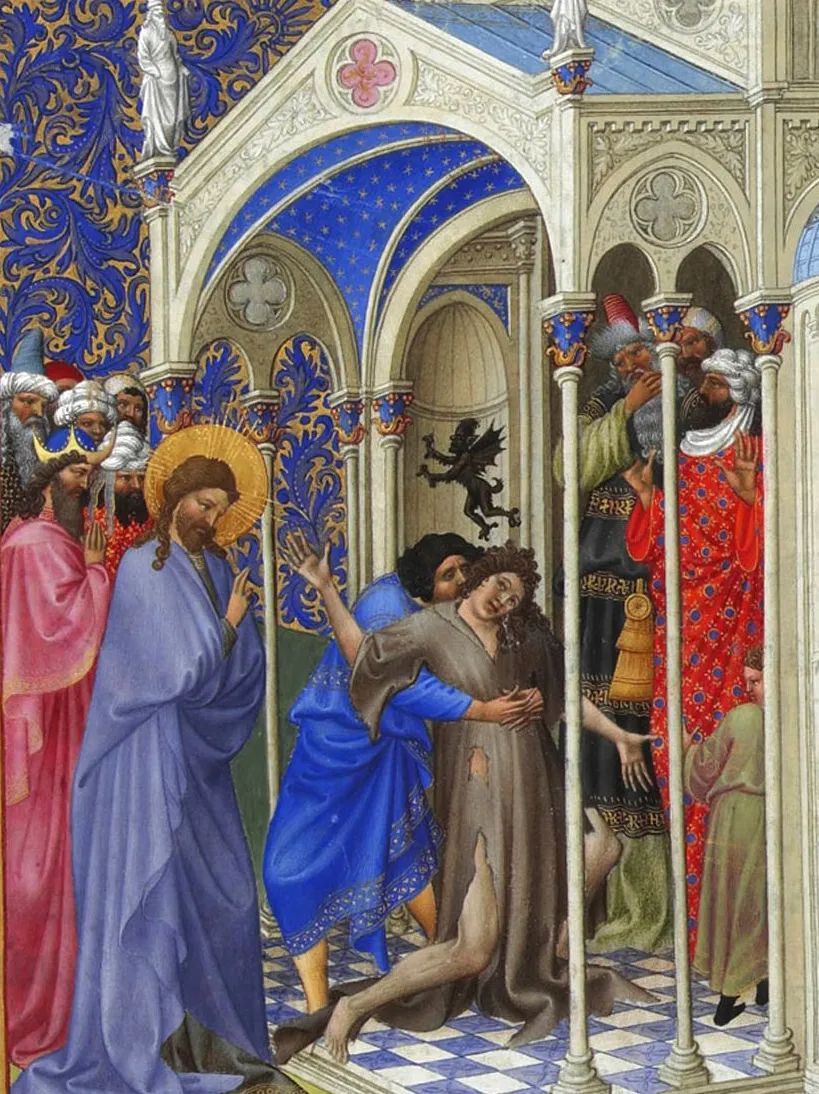Message of Abbot Paul - Monday 20th February 2023
Abbot Paul • February 20, 2023

The mornings are getting lighter much earlier and there’s a lot of noise and activity when I go out with Toby for our early morning walk. For a reason unknown to me, he seems to attract the attention of a good number of robins. They sing loudly, and I should say beautifully, as he approaches and then try to engage him in some sort of fight. Yesterday morning, I stopped for a moment and looked on bemused as three of them appeared to highjack him, preventing him going further to the spot he was innocently making for. As he turned back disappointed, they sang some kind of victory cantata and the song was taken up an army of blackbirds and others whose songs I couldn’t make out in the cacophony of exhilaration. The whole performance was entertaining, to say the least.
Our Gospel passage from Mark is quite a long one, (Mk 9: 14-29). I’m always surprised how in a Gospel as short as Mark’s we frequently find these long passages. As Jesus comes down from the mountain of the Transfiguration with Peter, James and John, they come across a large crowd arguing with some scribes. When they see Jesus, they turn and run towards him in amazement. Jesus asks why they are arguing. “A man answered him from the crowd, ‘Master, I have brought my son to you; there is a spirit of dumbness in him, and when it takes hold of him it throws him to the ground, and he foams at the mouth and grinds his teeth and goes rigid. And I asked your disciples to cast it out and they were unable to.’” We note the detail in the man’s description of his son’s condition and the fact that the disciples are unable to cure the boy. Jesus appears to be angry, but he is not. “‘You faithless generation’ he said to them in reply. ‘How much longer must I be with you? How much longer must I put up with you? Bring him to me.’ They brought the boy to him, and as soon as the spirit saw Jesus it threw the boy into convulsions, and he fell to the ground and lay writhing there, foaming at the mouth.” Who is Jesus addressing? It's not the boy’s father, surely. Is it the crowd or even his disciples?
Jesus asks for more details. Not every healing is simple and straightforward. “Jesus asked the father, ‘How long has this been happening to him?’ ‘From childhood,’ he replied ‘and it has often thrown him into the fire and into the water, in order to destroy him. But if you can do anything, have pity on us and help us.’ ‘If you can?’ retorted Jesus. ‘Everything is possible for anyone who has faith.’” The poor man is desperate to see his son healed. He doesn’t doubt Jesus’ ability to heal the boy, but says quite naturally and politely, ‘If there is anything you can do…’ Jesus replies as he often does when speaking of faith. “Immediately the father of the boy cried out, ‘I do have faith. Help the little faith I have!’” How often have we said words such as these. We do have faith. We are men and women of faith, and yet, at times, our faith appears to be lacking, at least to ourselves. God probably sees things differently. Jesus, seeing the man’s faith, heals the boy. “And when Jesus saw how many people were pressing round him, he rebuked the unclean spirit. ‘Deaf and dumb spirit,’ he said ‘I command you: come out of him and never enter him again.’ Then throwing the boy into violent convulsions it came out shouting, and the boy lay there so like a corpse that most of them said, ‘He is dead.’ But Jesus took him by the hand and helped him up, and he was able to stand.”









